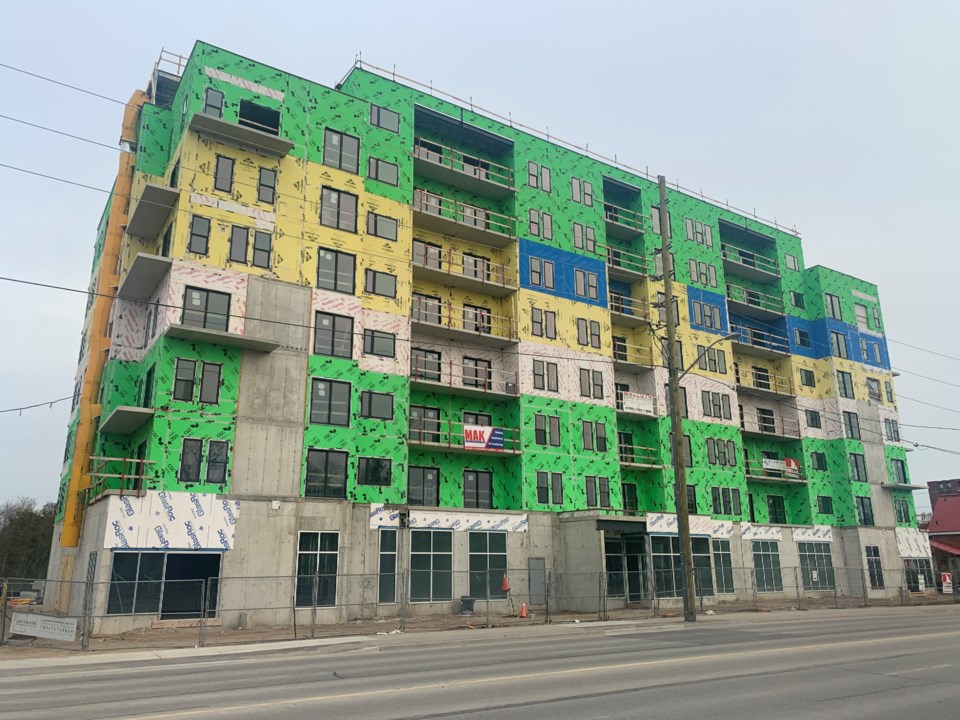Simcoe County council is hoping to find a way to unclog the backlog and improve services for landlords and tenants.
Wasaga Beach Deputy Mayor Tanya Snell put forward a motion during Tuesday’s committee of the whole meeting, asking staff to determine the best way to engage the provincial government and fellow service managers on how to help make positive changes to the Landlord and Tenant Board (LTB) process.
The goal is to find a way to improve the board, which resolves disputes between landlords and tenants and gives them information about their rights and responsibilities, in order to increase efficiencies of hearings in an effort to incentivize increased affordable housing and rental stock development.
Prior to putting forth her motion, Snell, who sits on the county’s affordable housing advisory committee, noted one issue in particular is becoming a threat to a “long-term, successful outcome” when it comes to obtainable, purpose-built rental rentals units being available not only in Simcoe County but across Ontario.
The issue is the current state of the LTB in the province, she added.
“While I recognize the majority of folks are responsible, pay their rents on time and take care of their home as if it were their own, there are also, sadly, a segment who are professional tenants,” Snell said.
“They work this dysfunctional system to their benefit, going months without paying rent and or causing significant damage to the rental property, and leaving the landlord in financial mess and potential ruin,” she added.
In the board’s current state, Snell noted it can take upwards of eight months for a meeting with the board. And compared to other provinces, tenants tend to be favoured over landlords in Ontario, she added.
“This significant delay in getting in front of an adjudicator is extremely impactful not only in terms of the sustainability, but more importantly the growth of purpose-built and available rental housing in our province and our county,” said Snell.
As a significant land holder, with more than 4,000 units, the county itself is a landlord to thousands of residents. The county is also asked to provide financial incentives to residents to build a basement suite at attainable rent, she added.
“How are homeowners (expected) to take that risk when they don’t have a system that protects them?” Snell asked.
Although Snell pointed out the province is considering incentivizing the private building sector to get involved in creating a solution by providing purpose-based, obtainable rentals, the challenges may prove to be too big a deterrent.
“If you were an investor, would you choose the challenges currently faced in our province or would you build west where the LTB is more balanced and faster responding? I can’t help but feel this inequity across the country will influence private sector investing in our province,” she said.
Innisfil Mayor Lynn Dollin supported the motion, adding she has heard a number of stories from residents struggling to obtain affordable housing.
“I know we’ve heard a lot about 'reno-victions' and about the significant challenges that tenants face. There are lots of things going on that shouldn’t be going on in the landlord-tenant space and the sooner we can get them fixed the better for everyone,” said Dollin.
'Reno-victions' refers to when a landlord says they are going to be doing renovations to a unit and then evicts the tenant based on that. Often times, they then rent the property for significantly more than what the previous tenant had been paying.
Orillia Coun. Jay Fallis admitted that while he is not necessarily well educated on the topic, he does recognize there are a number of challenges at the board. He was also worried that the focus of the request was too narrow of a scope.
“There are greater issues here. It’s being used often as the only option for renters as a way to ensure they have some affordability maintained within their property," he said. "My personal thinking is that … this letter shouldn’t be just about the LTB … it should be about providing more affordable housing generally."
Advocating for change within the LTB is one good impact on affordability, noted Mina Fayez-Bahgat, the county's general manager of social and community services, but it doesn’t stop staff from also looking at other ways as well.
“We are seeing, just as a landlord, 10 years ago we didn’t have these kinds of delays," he said. "The system can work it … (we) just need to raise the issue that the way it’s set up right now is precluding people who are waiting for affordable housing to get into the deepest, subsidized housing available.
“Concurrently, we can also advocate, incentivize and figure out different ways ... in how to create more affordability. That can include incentivizing private (and) public partnerships, developments, creating more units in the system," Fayez-Bahgat added. "But similarly, we have to protect the system we already have from being stagnant and not available to those who need it the most.”



